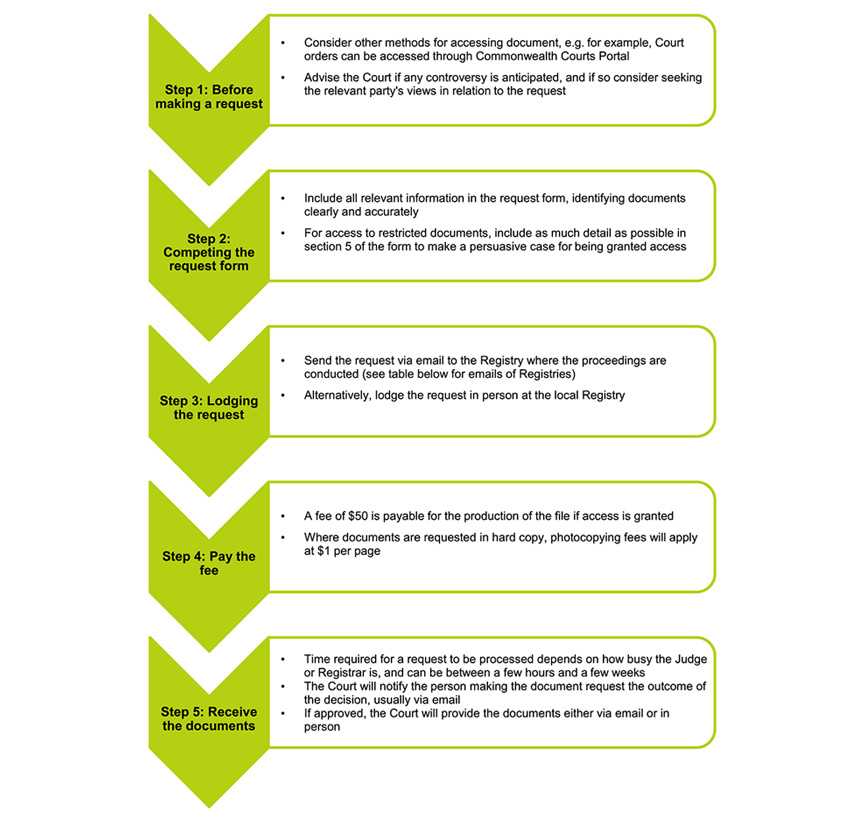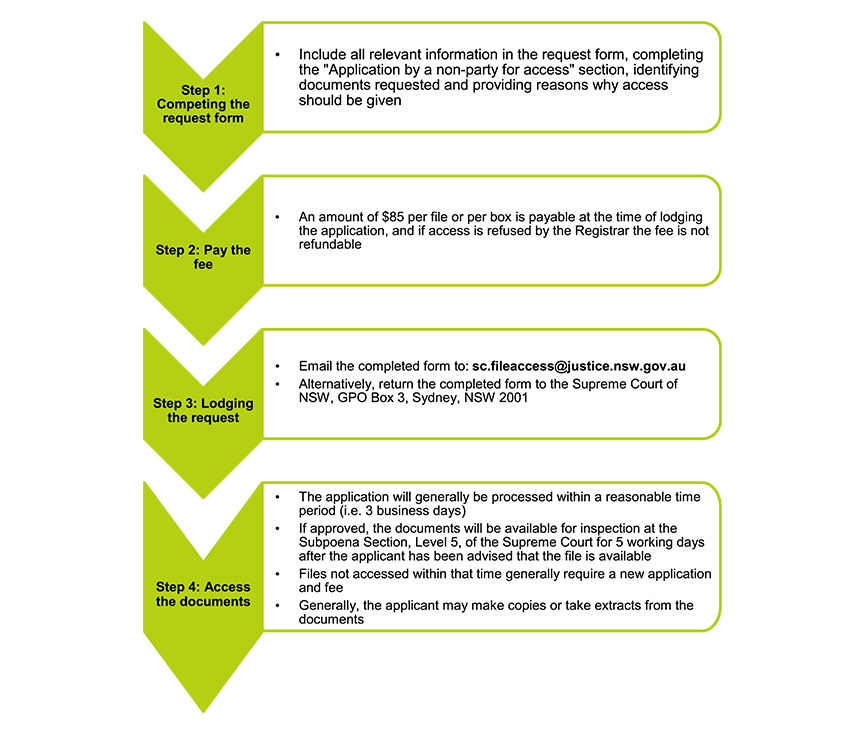Tips and traps to accessing Court documents as a non-party

There are specific procedural requirements for non-parties wishing to inspect or access Court documents. Here, we summarise the relevant rules for non-party access to Court documents and set out a how-to guide for the Federal Court and the NSW Supreme Court (if you're in another State, you can check the websites of the Victorian Supreme Court and Court of Appeal, Queensland Supreme Court and Court of Appeal, or Western Australia Supreme Court for more information).
Non-party access in the Federal Court
Rule 2.32 of the Federal Court Rules 2011 (Cth) entitles a non-party to inspect certain categories of Court documents for Federal Court proceedings without leave of the Court, subject to certain exceptions such as confidentiality or restrictions on publication. These types of documents are listed in r 2.32(2) and include originating applications or cross-claims, pleadings, statements of agreed facts and interlocutory applications.
Court documents not listed in r 2.32(2) include affidavits, exhibits, unsworn statements of evidence, subpoena material and written submissions. A non-party may apply to the Court for leave to inspect any document not covered by r 2.32(2). Reasons will often need to accompany such an application to explain why these documents are sought (for example, a newspaper journalist may seek access to documents to “assist in the fair and accurate reporting of matters of journalistic interest”, as was recently evidenced in Seven Network v Cricket Australia (No 2) [2021] FCA 1032).
Where a document has been admitted into evidence or read in open court, the Court will generally allow access to that document subject to hearing any objections from the parties to the proceeding. However, where only parts of the document have been admitted into evidence or read in open court, access may be refused on the basis that it would be unduly burdensome to provide a redacted version of the document. The application form can be found here.

Non-party access in the NSW Supreme Court
Non-party access to court documents in the NSW Supreme Court is informed by Practice Note SC Gen 2 "Access to Court Files". Non-parties who have completed the relevant form will normally be granted leave to access to the following documents (subject to any confidentiality considerations by the Judge or registrar dealing with the application):
- pleadings and judgments in proceedings that have been concluded, subject to any confidential orders;
- pleadings in proceedings that have not been concluded with leave of a Judge or a registrar;
- documents that record what was said or done in open court;
- material that was admitted into evidence; and
- information that would have been heard or seen by any person present in open court.
The Judge or Registrar dealing with the application retains the discretion to withhold certain material or portions of it on the basis that it should be kept confidential.
Access to other materials will not be allowed unless the registrar or Judge is satisfied that exceptional circumstances exist. This is a relatively high threshold to meet and will require persuasive reasons in support of the application. In contrast to the Federal Court, the NSW Supreme Court requires reasons for access to any Court document.

Obtaining access to Court documents can be advantageous for clients whose circumstances are similar to those being considered in existing proceedings. Reviewing relevant court documents can help to inform the strategy of your case. They can also provide an insight into how a case has been decided, which can assist in assessing matters such as liability (or lack thereof) in the future.